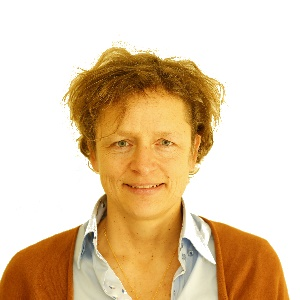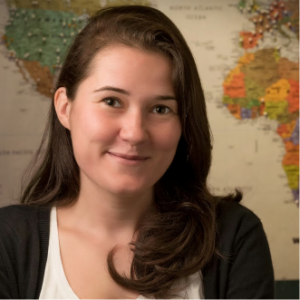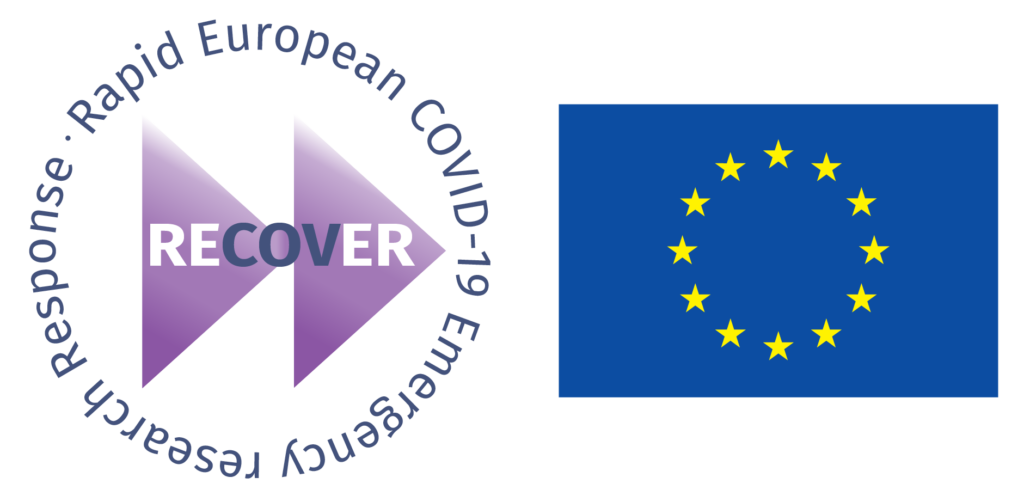20 May 2021
To better understand what working on COVID-19 during the pandemic entails, we have interviewed Evelyn Depoortere and Stefanie Sowinski. Two policy officers of the European Commission who are involved in the research on COVID-19.
What is your role within RECOVER/in the COVID-19 pandemic and what it entails?
I work at the European Commission and I was the project officer for the RECOVER project right from its start, says Stefanie. I have led the process of the signature of grant agreement back in March 2020 and since then followed the work of RECOVER closely to see if tasks set out in the grant agreement are being achieved and to facilitate the smooth running of the project. Although the project management tasks have now been taken up by an excellent colleague of mine and is handled by the new established Executive Agency HaDEA, I will stay closely involved in the work of RECOVER and continue to attend the biweekly RECOVER meeting, which have been very useful especially at the start of the pandemic, and continue to be very informative.
Could you tell us a little bit about the project/work you’re involved in?
I am a policy officer at the European Commission since September 2019, explains Stefanie. As a policy officer at the Commission I am member of the “Infectious Diseases Team” in our unit and mainly involved in our COVID-19 response and the setting-up of the Global Health Partnership – EDCTP3 under Horizon Europe. With regard to RECOVER, I supported the establishment of the trial coordination board that consists of the EU-RESPONSE and RECOVER project to coordinate the large clinical trials taking place in both projects. I will continue to follow the RECOVER project, considering its policy importance. I am also involved in the organisation of the “Research to Policy” meetings that take place together with other H2020 projects working on COVID-19 and our colleagues from DC SANTE and ECDC.
What is the expected impact of the work you’re doing?
As an important public research funder, the Commission can contribute to the agenda setting and the implementation of policy initiatives or priorities, says Evelyn. One example is the policy importance of the clinical trial networks for preparedness.
The EU-funded PREPARE project was a frontrunner in setting up a European network for research preparedness in case a large epidemic or pandemic would hit. It served as an example for the EDCTP-funded PANDORA-ID-NET and ALERRT networks, and also for the EU-funded projects on Zika research in Latin America. Following the Zika research workshop organised by GloPID-R in December 2016, the funders’ network set up a working group on clinical trial networks, to promote collaboration between different regional clinical trial networks. The COVID-19 response illustrated the importance of such networks, as an important tool to avoid fragmentation of trial initiatives. The REMAP-CAP trial has been a clear success, showing the example of how investment outside of emergencies pays off when a pandemic hits.
Another example relates to the sharing of data. The Commission attaches great importance to the timely sharing of research results, particularly in the context of a public health emergency, where time is of the essence. After the Zika emergency, we developed a specific clause on open access to research data to be included in the H2020 grant agreement, which can be activated in case the research responds to a public health emergency. This clause has been of high relevance in the context of the COVID-19 response. Data sharing implies also harmonisation of the data that are collected, to allow pooling of data across projects or trials. As a research funder, we are promoting and reinforcing such data harmonisation efforts.
In the context of COVID-19, what are some of things you’ve found surprising to work with?
I am the mother of two young children, Stefanie explains. I think, as many people in my situation would agree, during the lockdown situation with schools and crèches closed the combination of taking care of young children and working under tight deadlines with a substantial workload is very difficult. And for me it resulted in very many late nights in front of the computer. I am lucky though that I am currently living in Brussels as after the initial lockdown schools and crèches remained largely open (unlike in my native country Germany where home-schooling is back in place since December 2020).
The team of people that are working on the COVID-19 response in our unit at DG RTD are fantastic. Working with them has been a great experience for me, especially since I only joined 4 months before the COVID-19 outbreak. The working atmosphere is supportive, collaborative, which helped me with effective execution of work tasks. Even the lack of face-to-face meeting was largely compensated by open, efficient communication in the team.
With regard to RECOVER, I found the bi-weekly “RECOVER Extended Scientific Committee” meetings very helpful. They are not only interesting from a scientific perspective, but also facilitate our work as policy and project officers since we have a very regular overview of what has been achieved in the project – which is even more important for a project on the forefront of the pandemic response like RECOVER.
Do you have any lessons to share for the future?
A key challenge relates to the sustainability of large research initiatives. But new funding opportunities come along regularly, aiming to address the latest societal challenges. These often provide opportunities to build on the work performed in earlier projects. Many of the beneficiaries of the PREPARE and RECOVER projects are involved in the ECRAID initiative, which is a way forward to ensure much of the investments made can be continued. This is a great example of how combined efforts can make the difference. It is important to manage expectations in this regard and remind researchers that public funding is released through an open and competitive process based on evaluation by independent experts.
Another lesson learned from the Ebola and Zika virus outbreaks in the past, is the speed for making research funds available. Under Horizon 2020, a specific topic was introduced as a systematic part of the annual work programme, for the rapid mobilisation of funds in the context of a public health emergency. This proved to be extremely helpful in the COVID-19 pandemic response, where the Commission published the first call for expressions of interest on 31 January 2020, the same day that the WHO declared the public health emergency of international concern. We aim to continue such a topic under our new framework programme Horizon Europe.
About Evelyn Depoortere

Evelyn Depoortere, MD, MPH, is a medical doctor, trained in tropical medicine and international public health. She has over 20 years of experience in emergency response, working in humanitarian emergencies, and contributing to many outbreak investigations and response activities, including Marburg and Ebola virus disease, Severe Acute Respiratory Syndrome (SARS – the first one in 2003) and Chikungunya. After years of fieldwork with Médecins Sans Frontières and Epicentre, she joined the European Centre for Disease Prevention and Control (ECDC), to set up and lead the Centre’s outbreak response activities in the first years of its existence. Following few years at the Institute of Tropical Medicine Antwerp, Evelyn joined the European Commission end of 2015, where she continues working in the fascinating area of epidemic and pandemic preparedness and response, with a focus on research policy.
About Stefanie Sowinski

Stefanie Sowinski, PhD, is a biomedical scientist with over 15 years research experience in immunology and infectious diseases research. She received her PhD in the molecular and cellular basis of infectious diseases from Imperial College London in 2009. In her early career, she split her time between working as a scientist at the Gladstone Institute in the US and at the Infectious Diseases Institute (IDI) in Kampala, Uganda, an East African center of excellence. As the Director of IDI’s Translational Research Laboratory she led capacity building efforts in biomedical research and supported local students in their Masters and PhD studies. In 2015, she was appointed Director of International Programs at the Center for AIDS Research at the University of California San Francisco (UCSF) to support UCSF’s research projects in East Africa. She joined the European Commission in the fall of 2019, where she is involved in research policy in global health, including the set-up of the new Global Health Partnership (EDCTP3) and the response to COVID-19.
